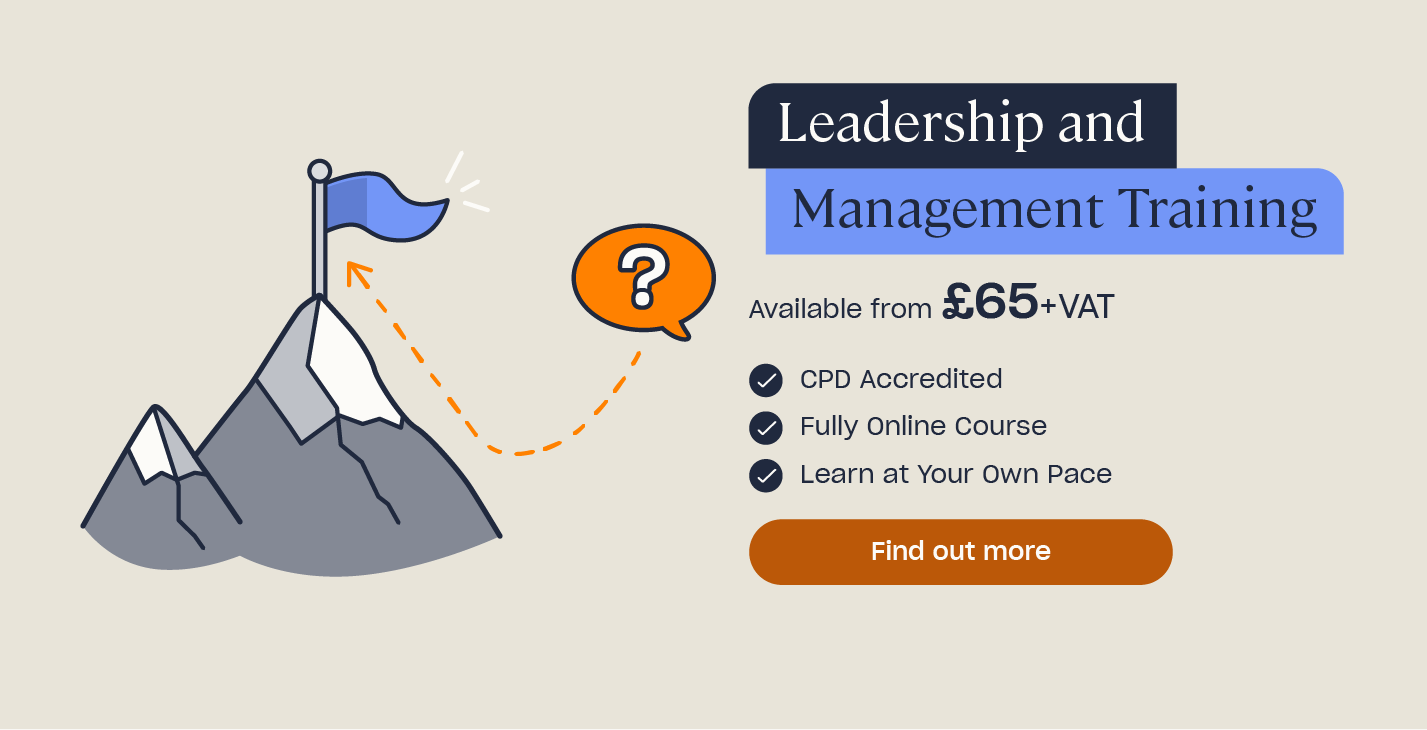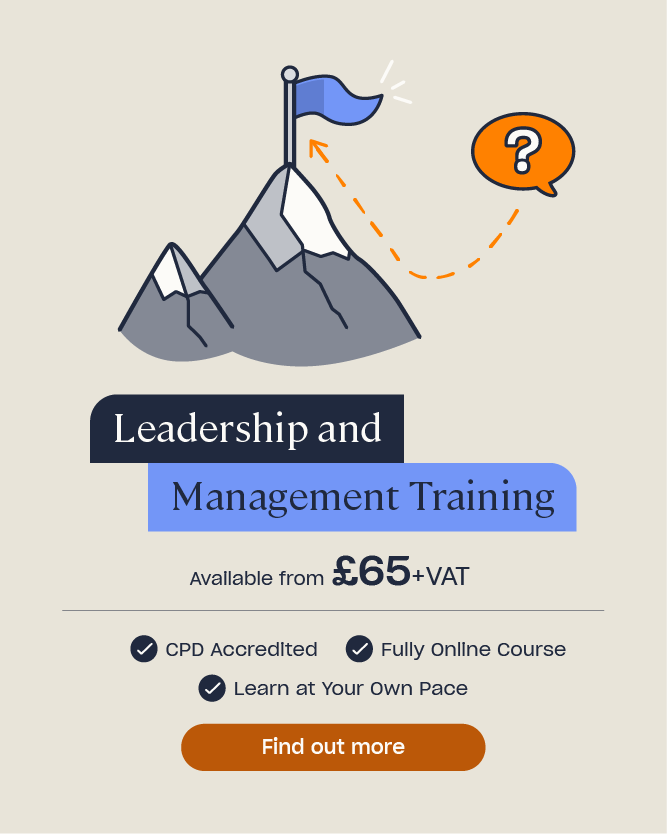What is EQ? A Guide to Emotional Intelligence in the Workplace
Having good emotional intelligence is vital for the future of work. Whilst technology can – and will – replace many manual workplace skills, it cannot replace our social and emotional traits, so focusing your time on improving these will ensure you remain a desirable employee.
Many job roles require you to apply emotional intelligence in the workplace – consider how it applies to roles in healthcare, social care and education – but it’s also essential for office-based roles, managerial positions and to support analytical thinking. No matter who you are or where you work, applying emotional intelligence will benefit you.
In this article, we’ll look at the importance and benefits of emotional intelligence in the workplace, a few examples, and provide a few tips on how to improve your own emotional intelligence in the workplace.
What is Emotional Intelligence?
Emotional intelligence is the ability to perceive, understand and regulate emotions. It’s about recognising and understanding why people behave as they do and knowing how to respond to them. Emotional intelligence is also sometimes known as emotional quotient or EQ.
The Five Components of Emotional Intelligence
Psychologists state that emotional intelligence has five main components:
- Self-awareness – our ability to understand ourselves, to recognise and comprehend our behaviours and emotions and to know how these can affect others. It also refers to having a clear picture of your strengths and weaknesses so that you can take responsibility and always act on your beliefs and values. It means admitting to mistakes, understanding your faults, holding yourself accountable and being honest.
- Self-regulation – our ability to control impulses and moods and consider the consequences of our actions before we do them. Self-regulation enables you to stay in control of your emotions. It means not making rushed decisions, jumping to conclusions, judging people or reacting emotionally to situations. It means behaving with humility, remaining calm under pressure and not compromising on your values.
- Internal motivation – being driven to work hard, perform, act and pursue goals for personal reasons, rather than for a reward. As a team leader, recognise when you’re being positive or negative about something and strive to be hopeful and find something good in all situations, as this will help motivate your peers to work their best.
- Empathy – the ability to recognise and understand others’ emotions, motivations and situations. This helps to build and lead teams successfully – listen to your team and your peers, show them you care and respond to their feelings. If you can take an interest in people, challenge those who are acting unfairly and give useful feedback, you will quickly earn the respect and loyalty of your team members.
- Social skills – the ability to build and manage relationships, network, lead, manage conflict and work with others. Teams work well together when they are led by an inspiring, caring leader who looks after the people in their team, listens to their problems and successes and keeps them involved at every stage of the project.

Emotional Intelligence in the Workplace Examples
Emotional intelligence in the workplace means:
- Recognising people’s strengths, capabilities and limits.
- Showing empathy and trying to understand the perspectives of others.
- Using emotions appropriately to convey meaning.
- Managing conflicts.
- Encouraging teamwork.
- Understanding your own reactions to situations.
- Understanding how other people’s reactions differ and tolerating these differences.
For example, if you’re a manager or team leader, you’ll need to apply emotional intelligence in the workplace by: recognising which of your team members are best for each task; communicating effectively so everyone understands their work and your expectations; encouraging and motivating the team to work together; and handling any problems or conflicts that arise.
As an employee, you can apply emotional intelligence in the workplace by: understanding the different ways your peers may approach a task and being empathic to their differences; recognising when a conflict may arise and avoiding it or handling it appropriately; working harmoniously as a team; understanding how you react to difficult situations or conversations and using this knowledge to your advantage; and managing relationships with your peers.
Why is Emotional Intelligence Important in the Workplace?
Workplaces are relational environments, meaning they contain a range of different personalities, skills and strengths that all must work together to achieve a common aim. Emotional intelligence – such as empathising with others and understanding their motivations and decisions – is therefore essential for workplace harmony and success.
In the workplace, emotional intelligence helps us look after our mental health and strengthens our ability to lead. It helps us to manage effective relationships and protect ourselves when it comes to conflict. It also allows us to understand the thoughts and feelings of others and consider the consequences of how we act. This makes emotional intelligence in the workplace intrinsic to our future success.
A lack of emotional intelligence in the workplace, however, can cause a detriment to relationships and wellbeing. It can make difficult conversations even harder, make it tricky to understand other people’s opinions or reactions and increase the chances of conflict or misunderstandings. This is why it’s such an important skill to possess.
Benefits of Emotional Intelligence in the Workplace
There are many benefits to embracing emotional intelligence at work, whether you’re an employee, a manager or a team leader, including:
1. More Motivation
Those who have higher levels of emotional intelligence have a better ability to organise themselves and their workload, self-regulate their tasks and time and have more motivation to accomplish things. This reduces the tendency to procrastinate and increases the amount of work you get done. In turn, this also generates greater feelings of accomplishment and improved self-confidence.
2. Improved Communication
People with high emotional intelligence can express themselves clearly and create effective networks between themselves and others. They are open to asking others for help and know how to communicate their plans clearly. Those with high EQ also make transparent leaders as they know how to communicate to the rest of the organisation and can listen actively to what their team is saying. They can control themselves, their thoughts and their emotions to lead others in a positive direction.
3. Better Acceptance of Feedback
A key attribute of those with high emotional intelligence is self-regulation, which makes them much more accepting of feedback. Rather than taking criticism personally, they use it as a platform from which to grow. It also prevents sudden outbursts of emotion and creates clearer lines of communication and feedback across your whole organisation.
4. Greater Staff Stability
Staff members with a higher EQ are more positive about their work and their situation. They try to see the positive side of everything and aren’t deterred by adversity or a challenge. As a result, they’re more likely to feel positive at work and, if something bothers them, they think of the best way to approach it and fix it. In turn, this keeps staff retention rates high and turnover rates low.
5. Improved Mental Wellbeing
There’s a strong correlation between high emotional intelligence and a happier, more positive outlook on life. Furthermore, those with a higher EQ are also better at empathising with others’ points of view, which helps to prevent conflict at work and promotes a more diverse, inclusive workforce. This makes your workplace a much nicer environment to be in and is something all organisations should strive to achieve.
Looking to Learn More?
We offer a range of Business Essentials Courses that can help you to develop the skills you need to be successful. Find everything from Leadership & Management and Effective Leadership to Communication Skills.
How to Improve your Emotional Intelligence
Emotional intelligence doesn’t remain the same over your lifetime, nor is it something you’re born with or cannot achieve. Although it takes work, you can easily improve your emotional intelligence and see your workplace, work life, and personal life all improve as a result.
To improve your emotional intelligence, try the following top 10 tips:
- Observe yourself. Be self-aware and understand your emotions so they don’t rule their actions. Pay attention to what your emotions are telling you in various situations and then respond accordingly.
- Be proactive, not reactive. Self-regulate your emotions to prevent them from hijacking your reactions. Think before you act and walk away from any situation that makes you feel too reactive until you can think clearly and offer a constructive response.
- Identify your weaknesses. Are there communication skills or people skills that you’re better at than others? Take a look at areas where you struggle – such as offering feedback or giving compliments – and focus on how you can improve.
- Ask for the help of others. Don’t assume you know everything already or cannot change the way you are. Instead, ask for the opinions and feedback of others and use what they say to help you improve.
- Develop a growth mindset. A growth mindset means embracing the opportunity to learn and grow. Believe that you can improve your skills and knowledge with effort and don’t let your failures or self-limiting beliefs hold you back from trying.
- Set milestones and rewards. Set yourself a small goal in an area you wish to improve and allow yourself a reward when you achieve it. Choose something like ‘Compliment 5 people this week’ or ‘Request 360 feedback from my colleagues’ – anything that will help you to apply your emotional intelligence skills in the workplace.
- Practise every day. If there are aspects of emotional intelligence you want to improve, continue to work on them each day or each week. Personal development takes time, consistency and effort for it to become natural.
- Build your resilience. There are often times when things go differently to how we planned or we feel like we’ve failed or can’t do something. Approach each situation with optimism rather than pessimism and ask yourself ‘what can I learn from this experience?’ to turn every negative experience into a positive journey of growth. To learn more about resilience in the workplace, take a look at our article on the topic.
- Don’t judge other people. Empathise with other people and try to understand the reasoning behind their actions or words. We all make mistakes, have different values and are on a different life path, so be patient, understanding and inclusive of everyone.
- Listen actively. When you’re talking to someone, focus on what they’re saying and not just on what you want to say next. Really listen to their words and their meaning, looking out for emotional cues. Put yourself into their position to understand their intentions.

What to Read Next:
- The Importance of Upskilling Staff in Your Business
- Resilience Quiz
- Neuro-Linguistic Programming (NLP) Quiz
- The Consequences of a Lack of Training in the Workplace
- How to Promote Environmental Awareness in the Workplace
- Soft Skills in the Workplace
- Leadership and Management Training
- Coaching and Mentoring Training











